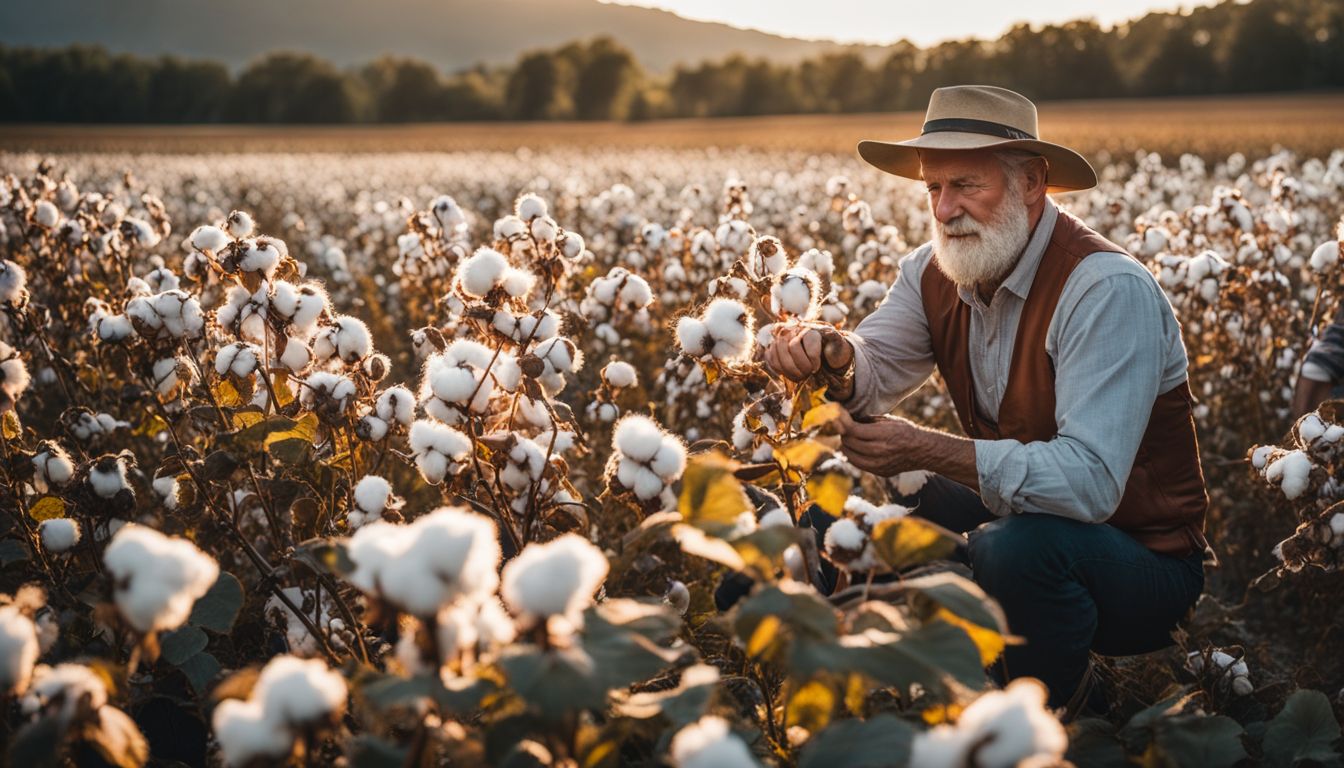What Is BCI Cotton? A Deep Dive Into Its Sustainability Claims
Cotton is a crucial part of our everyday lives, but did you know there’s a more sustainable alternative to conventional cotton? BCI Cotton, or Better Cotton Initiative Cotton, is considered the largest cotton sustainability program in the world.
This blog post will enlighten you on what BCI Cotton is and how its adoption can contribute to more sustainable farming practices worldwide. Strap in as we unravel this eco-friendly fabric that could change your shopping decisions forever!
Key Takeaways
- BCI Cotton is a sustainable alternative to conventional cotton that adheres to the standards set by the Better Cotton Initiative (BCI).
- BCI Cotton reduces water usage, decreases pesticide and chemical use, and improves the livelihoods of farmers.
- While BCI Cotton has limited impact on overall cotton production, efforts are being made to expand its reach and increase its influence in the industry.
- BCI Cotton faces challenges with transparency and traceability, but measures are being implemented to address these concerns.
What is BCI Cotton?
The Better Cotton Initiative (BCI) works towards making global cotton production more sustainable. BCI cotton is a type of cotton that adheres to the standards set by the initiative.
The Better Cotton Initiative (BCI) and its goals
The Better Cotton Initiative (BCI) is a big name in the world of cotton. It’s all about making cotton better for people and our planet. BCI has three main goals. The first goal is to lessen harm to the environment.
They want farmers to use less water and not harmful chemicals when growing cotton. The second goal is to make sure workers are safe and well-paid on farms where they grow BCI cotton.
The last goal is to improve how we make money from farming, so everyone gets a fair share. BCI wants its cotton growers to follow seven rules which help meet these goals.
How BCI Cotton aims to make global cotton production more sustainable
BCI Cotton is doing a big job. It wants to make the way we grow cotton better for our planet. The Better Cotton Initiative (BCI) says ‘no’ to bad farming ways and says ‘yes’ to ones that help people and nature.
BCI tells farmers not to use too much water. They also say using less harmful bug spray is good. This way, BCI can cut down what hurts our planet. Also, it’s not just about nature — it’s about people too! BCI asks farmers to treat their workers right and pay them fair money for their work.
These new rules are making the world of cotton better each day.
The Sustainability Benefits of BCI Cotton
BCI Cotton offers reduced water usage compared to conventional cotton, decreased pesticide and chemical use, and improved livelihoods for farmers.
Reduced water usage compared to conventional cotton
BCI Cotton saves more water than normal cotton. Farmers who grow it need less water for their crops. This is because they use smart ways to make the most of every drop. It’s part of what makes BCI Cotton better for our planet.
Decreased pesticide and chemical use
BCI Cotton helps to reduce the use of pesticides and harmful chemicals in cotton production. Compared to conventional cotton, BCI Cotton promotes responsible pesticide use, which means that farmers only apply these substances when necessary and follow safe handling practices.
By using less pesticides and chemicals, BCI Cotton minimizes the negative impact on the environment and human health. This is one of the ways BCI aims to make cotton production more sustainable.
Improved livelihoods for farmers
BCI Cotton aims to improve the livelihoods of farmers. By participating in the program, farmers receive training and support to enhance their sustainable farming practices. This helps them increase their crop yields and reduce production costs.
As a result, farmers can earn higher incomes and have more stable livelihoods. BCI also promotes fair labor practices, ensuring that farmers receive fair wages and work in safe conditions.
Through these efforts, BCI Cotton strives to create positive social and economic impacts for cotton farmers around the world.
Challenges and Criticisms of BCI Cotton
Limited impact on overall cotton production due to the small percentage of cotton produced under BCI standards.
Limited impact on overall cotton production
BCI Cotton has been praised for its sustainability efforts, but it’s important to note that it has a limited impact on overall cotton production. This is because BCI represents only a portion of the global cotton market.
While BCI has grown in recent years, conventional cotton still dominates the industry. Therefore, the positive changes brought about by BCI are not yet widespread across all cotton farms.
However, through its initiatives and collaborations with various stakeholders, BCI is working towards expanding its reach and increasing its influence in the industry.
Lack of transparency and traceability
BCI Cotton has faced challenges when it comes to transparency and traceability. Some critics argue that the program lacks clear visibility into the entire supply chain of BCI cotton, making it difficult to track its origin or ensure sustainable practices throughout.
This raises concerns about the credibility and authenticity of BCI cotton products. However, it’s important to note that BCI recognizes these issues and is actively working towards improvement.
They are implementing measures to enhance transparency in their supply chains, including better monitoring systems and third-party audits. By addressing these concerns, BCI aims to strengthen trust in the sustainability claims of their cotton products.
Working towards improvement and addressing concerns
BCI Cotton, like any sustainability program, has its challenges and criticisms. One concern is that it has a limited impact on overall cotton production. While BCI is the largest initiative of its kind, there are still many cotton farmers who do not participate in the program.
Another issue raised is the lack of transparency and traceability in the supply chain. Critics argue that without more accountability, it’s difficult to ensure that BCI Cotton meets its sustainability goals.
However, BCI acknowledges these concerns and is actively working towards improvement. They have set targets for increasing global adoption of sustainable practices and are collaborating with stakeholders to address issues such as transparency and traceability.
Conclusion
In conclusion, BCI Cotton is an initiative that aims to make cotton production more sustainable. It focuses on reducing water usage, decreasing pesticide and chemical use, and improving the livelihoods of farmers.
While there are challenges and criticisms surrounding BCI Cotton, efforts are being made to address concerns and improve its overall impact. Overall, BCI Cotton plays a significant role in promoting sustainability in the cotton industry.
FAQs
1. What is BCI cotton?
BCI cotton stands for Better Cotton Initiative cotton, which is a global program that promotes sustainable farming practices for cotton production.
2. How sustainable is BCI cotton?
BCI cotton aims to reduce the environmental impact of conventional cotton farming by promoting water conservation, reducing pesticide use, and improving farmer livelihoods.
3. How does BCI ensure sustainability in cotton farming?
BCI ensures sustainability in cotton farming through training programs for farmers on responsible pest management, efficient water usage, soil health improvement, and fair labor practices.
4. Is BCI cotton certified or labeled differently from regular cotton?
Yes, BCI-certified products can carry the “Better Cotton” label or logo, indicating that they have met the sustainability standards set by the Better Cotton Initiative.









